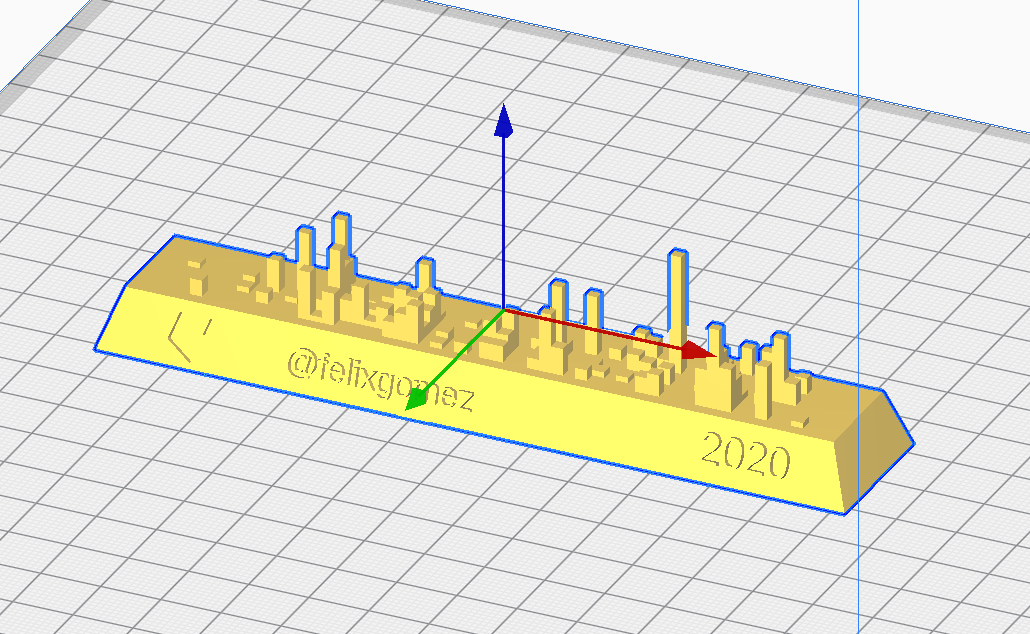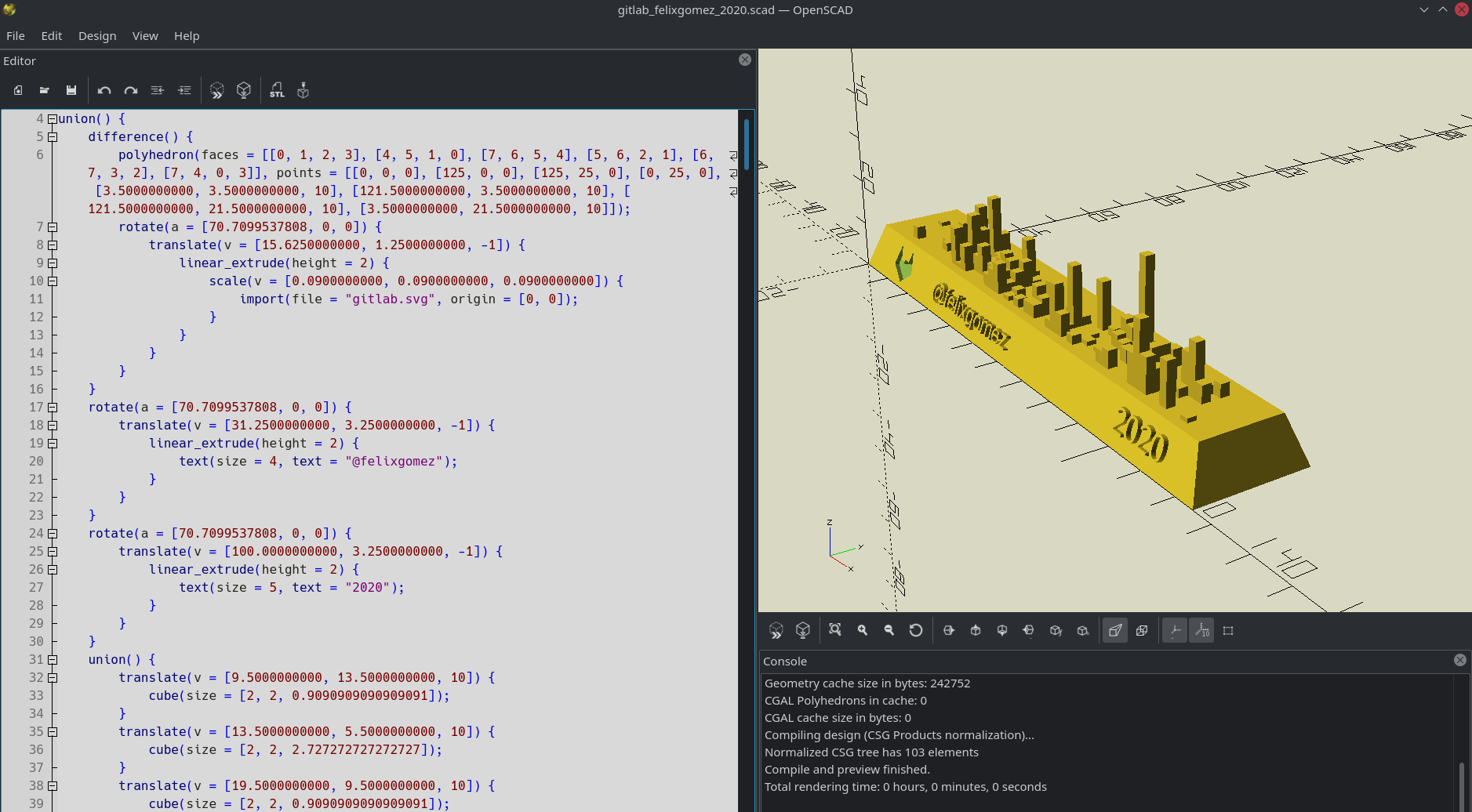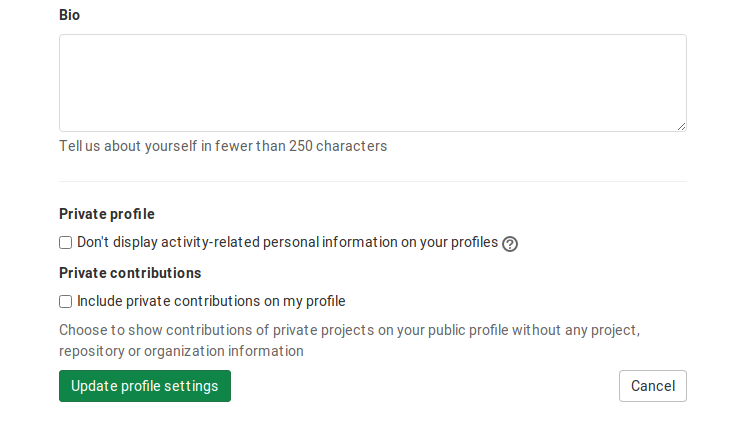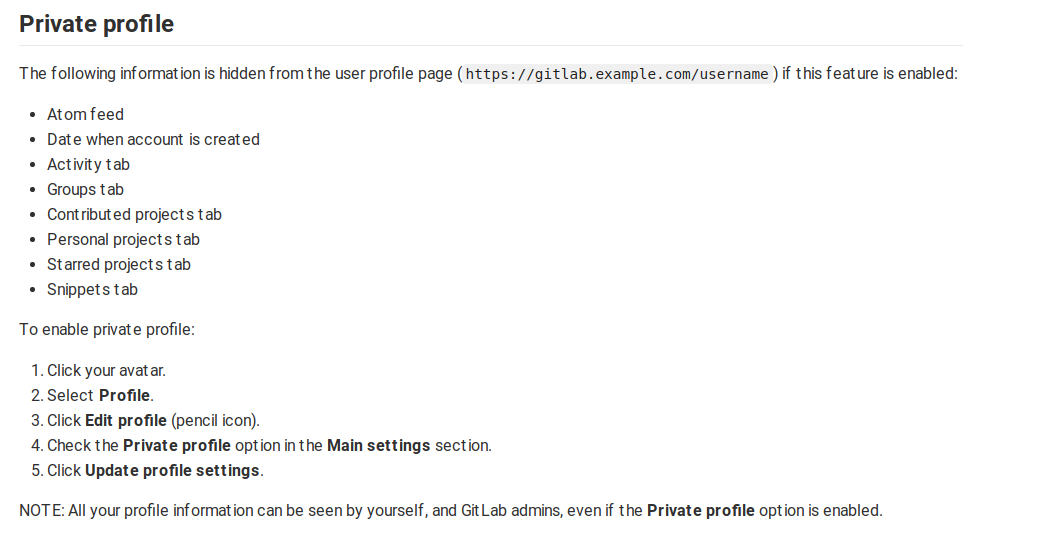gitlab-skyline is a Python command to generate a skyline figure from Gitlab contributions as Github did at https://skyline.github.com/
~ usage: gitlab-skyline [-h] [--domain [DOMAIN]] [--max_requests [MAX_REQUESTS]] username [year]
Create STL from Gitlab contributions
positional arguments:
username Gitlab username (without @)
year Year of contributions to fetch
optional arguments:
-h, --help show this help message and exit
--domain [DOMAIN] GitlabEE/CE custom domain
--max_requests [MAX_REQUESTS]
Max. simultaneous requests to Gitlab. Don't mess with their server!
Enjoy!
View a sample result of the preview at samples/gitlab_felixgomez_2020.stl and OpenSCAD generated code at samples/gitlab_felixgomez_2020.scad.
gitlab-skyline requires python3 and OpenSCAD. (need Python version >= 3.7)
Create your virtual environment as usual and install dependencies with
pip install -r requirements.txt
Install OpenSCAD from https://www.openscad.org/downloads.html and ensure that openSCAD executable is working with
openscad --version
python gitlab-skyline felixgomez 2020
or
./gitlab-skyline felixgomez 2020
if file has execution permissions.
If you want to get contributions from a custom installation you can use
./gitlab-skyline felixgomez 2020 --domain="https://customdomain.dev:8080"
For convience, a docker image is produced to generate the stl image file for you:
docker run -v $PWD:/data registry.gitlab.com/felixgomez/gitlab-skyline <username> [<year>]
Example: docker run -v $PWD:/data registry.gitlab.com/felixgomez/gitlab-skyline felixgomez
To use any custom parameters, simply append to the docker run command.
As said before, you can use it in custom installations through the --domain modifier.
Don't forget to make your contributions public in your user profile settings.
A few days ago I came across the Github skyline web application and it seemed like a good idea to be able to export the activity in skyline format to STL.
It quickly became viral among my friends, but in my daily work I use Gitlab more. That's when I came up with the idea to replicate it for Gitlab: I needed to have my own contribution skyline!
The project was developed on a Friday afternoon, although I had consulted some information previously, so do not expect quality code and wonders. As always pull requests are welcome! 😍
At first I was thinking to use the well known Gitlab endpoint https://gitlab.com/users/username/calendar.json but the information it provides is for one year back from now.
As far as I know Gitlab does not provide an endpoint to obtain contribution information by year but digging a bit I found that a call to https://gitlab.com/users/username/calendar_activities?date=2021-02-01 returns an HTML response easy to scrape.
I made use of classic BeautifulSoup for scraping, aiohttp and asyncio to go asynchronous and speed up the scraping process.
There is an extra option (--max-requests) to the gitlab-skyline command to control concurrent requests to Github to avoid the "Too many requests" message from their server.
SolidPython is a beautiful piece of code allowing to generate OpenSCAD code from Python.
Inkscape was used to vectorize the Gitlab logo for extrusion (pending to correct the Viewbox due to lack of time).
I love openSCAD for a long time but there are some old well known issues related with errors in the generated geometry. If you detect some on the final STL you could use https://www.meshlab.net/ to correct them.
I hope you like it!



